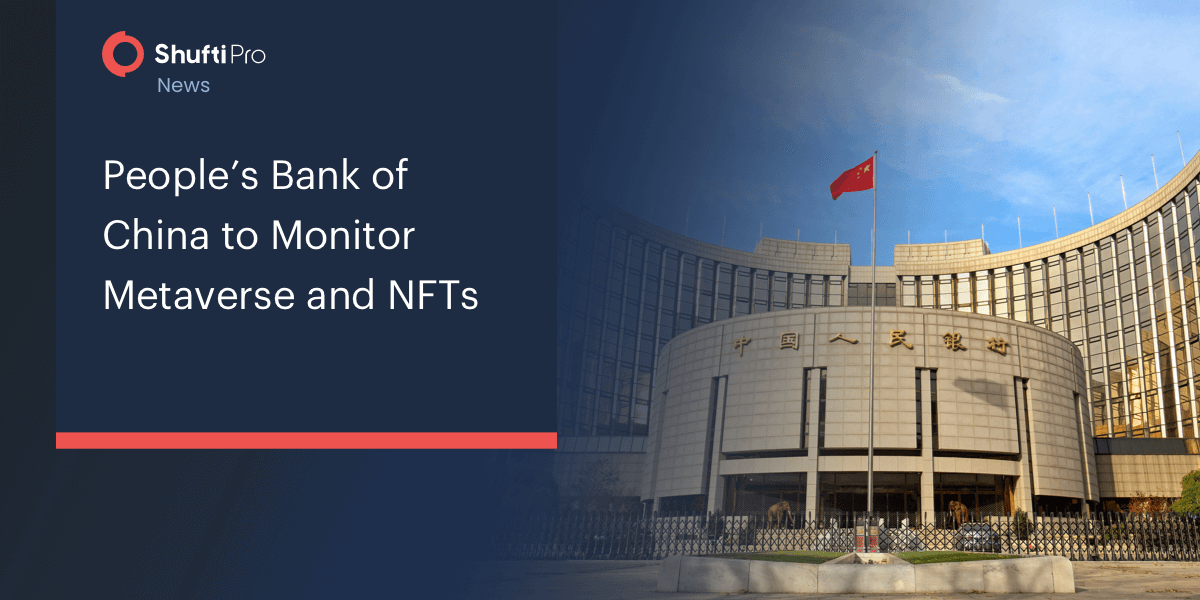People’s Bank of China to Monitor Metaverse and NFTs

The Chinese financial watchdogs are all set to expand cryptocurrency crackdown as Gou Wenjun suggests monitoring NFTs and metaverse transactions.
Gou Wenjun, director of the Anti-Money Laundering (AML) unit at People’s Bank of China (PBoC), proposed that China’s crackdown on cryptocurrencies could extend to NFTs and metaverse, as both currencies hold several risks, therefore the regulatory authorities must keep “consistent high-level vigilance” on evolution of digital currencies.
“As virtual assets, especially virtual currencies, pose increasingly serious challenges to national currency sovereignty, anti-fraud, anti-money laundering, and anti-terrorist financing, international organizations and governments are strengthening the supervision of virtual assets,” said Gou Wenjun.
The director stated that the virtual currency investments are due to decentralization and having anonymity factors, the government’s crackdown aims to lower the risk of elicit fund-raising, bogus schemes, tax evasion, money laundering, terrorist financing, and other financial crimes. He also suggested that such activities are mostly carried out by crafting a tool out of “isolated nature” of metaverse and NFTs.
Wenjun proposed that PBoC should work on four aspects to determine and assess the risk metaverse and NFTs represent.
- The bank should examine the non-financial assets, for instance, intellectual property, patents, and other quantitative measures to develop new laws for the virtual assets and virtual assets service providers
- Reinforce monitoring and analysis framework to track down the cryptocurrencies transaction. Wenjun calls banks and other financial firms to gather transactional data with true identities for verification and to develop suspicious transaction reporting mechanisms
- Banks should develop cryptocurrency transaction traceability systems and strengthen the application by using artificial intelligence technology to search into the wallets by activating address probes. This model of transaction tracking will effectively spot suspicious transactions from the records
- The AML units should expand their co-investigation with 60 overseas financial intelligence agencies. The information is to be shared among the authorities to monitor transactions. This will effectively lessen the number of rising crimes
“We should maintain a consistently high level of vigilance, look at the evolution of virtual assets and the development of underlying technology in an objective, neutral, and prudent principle, clarify the division of supervisory responsibilities, improve the transparency of virtual assets, and explore the use of regulatory sandboxes to study and judge the essence and nature of virtual assets,” he said.
Suggested Read: China Raises Penalty, Broadens Scope of AML Laws

 Explore Now
Explore Now













